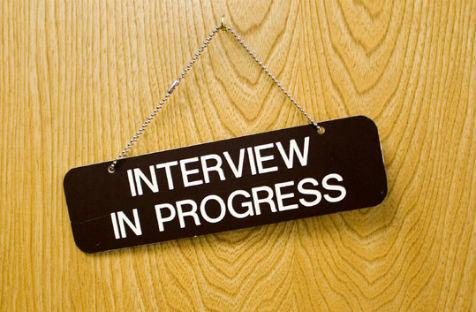One of the most trying aspects of the job seeking process is facing a string of rejections that fail to provide a single reason as to why somebody else was considered more suitable for the position than you. In a perfect world, we would all be notified about exactly what it was that pushed us out of the race. With this information under our belt, we’d go to our next string of interviews with an idea of what we need to work on. Unfortunately, the world doesn’t work like that, so many of us are left to struggle in the dark, pondering over what went wrong, what we could have done better and what we should do next time to improve our prospects.
However, there are some very common reasons as to why you weren’t considered the perfect fit for the position. And while nobody may have taken the time to tell you which of the following apply to you, if you have a good think about it, you’ll probably find you already know.
You didn’t have the right kind of experience
A lack of experience tends to be a big problem for first-time job seekers. But it can be just as big of a problem with long-time workers who continue to apply for positions that aren’t suited to their level or quality of experience. Many job descriptions provide specific requests of their candidates, usually permitting to a certain number of years in the specified field. If you don’t fulfill this experience requirement – don’t bother applying. All employers have an idea in their head of the kind of candidate they’re looking for and the very first on their list of criteria is their previous experience, so make sure you don’t needlessly fall into another rejection trap by carefully researching the position, company and job description that you’re applying for.
Your CV and cover letter weren’t up to scratch
The first thing employers tend to know about you is what you provide on your CV and what you write in your cover letter. As this is your first point-of-call, it’s very important that you tailor both these documents to suit the position you’re applying for. Your CV has to highlight skills that will transfer well into the job you’re trying to nab, and your cover letter has to adequately explain why you are the person who should be called in for an interview. That way, an employer will be able to look at your provided documents and immediately see how you could be a potential fit for the position they’re looking to fill.
You displayed a poor attitude
Few things hurt more than actually getting to the interview stage and not making it any further. When this happens, it tends to suggest that your attitude at the interview may not have been up to scratch. Perhaps you didn’t ask any questions of your interviewer, a very big mistake as asking questions indicates to your potential employer that you’re curious and enthusiastic about the position. Or perhaps you just didn’t stand out as a potential candidate, possibly because you stumbled over your answers to questions, making it seem like you’d never given the entire position much thought. A motivated, enthusiastic and interested attitude can go a long way – keep that in mind for next time.
You were not adequately prepared
The internet is a gift for job seekers, not just because it helps them find hundreds of available positions at the click of a button, but also because it tends to be full of information on your prospective employer. Researching a company or organisation before you are interviewed by them is extremely important if you hope to make an impression. Nobody wants to hire someone that doesn’t understand what their company is all about, or someone that isn’t intimately familiar with the product they’re selling. If you want to write for Empire magazine but have never read an issue in your life, it’s probably safe to say you won’t be considered the ideal candidate. Similarly, if you want to work for a publishing company specializing in young adult fiction, you’ll need to know your vampires from your wizards. Research is a key aspect of the pre-interview process, and showing that you’ve cared enough to Google the CEO is likely to help push your name to the top of the list.
You provided poor references
There is seldom a job where you are not asked to provide references, so it’s important that you’ve got your references under your belt and ready to go. Not providing any at all will most definitely signal land your application in the bin. But just because you’re required to provide references, doesn’t mean you shouldn’t be selective about who you’ve chosen to speak for you. What many employees don’t realise is that not all your references are necessarily going to provide a glowing review. If you’re not confident about your references, it could be a good idea to ensure you get written references rather than simply providing the number of your former employee. That way, you’ll know that your reference has spoken highly of you. It’s also important to keep your references up to date, as nobody wants to call up your old high school English teacher from five years ago. The recommendation of another person can work wonders for your future, so ensure you’ve at least got somebody who is going to back you up.





